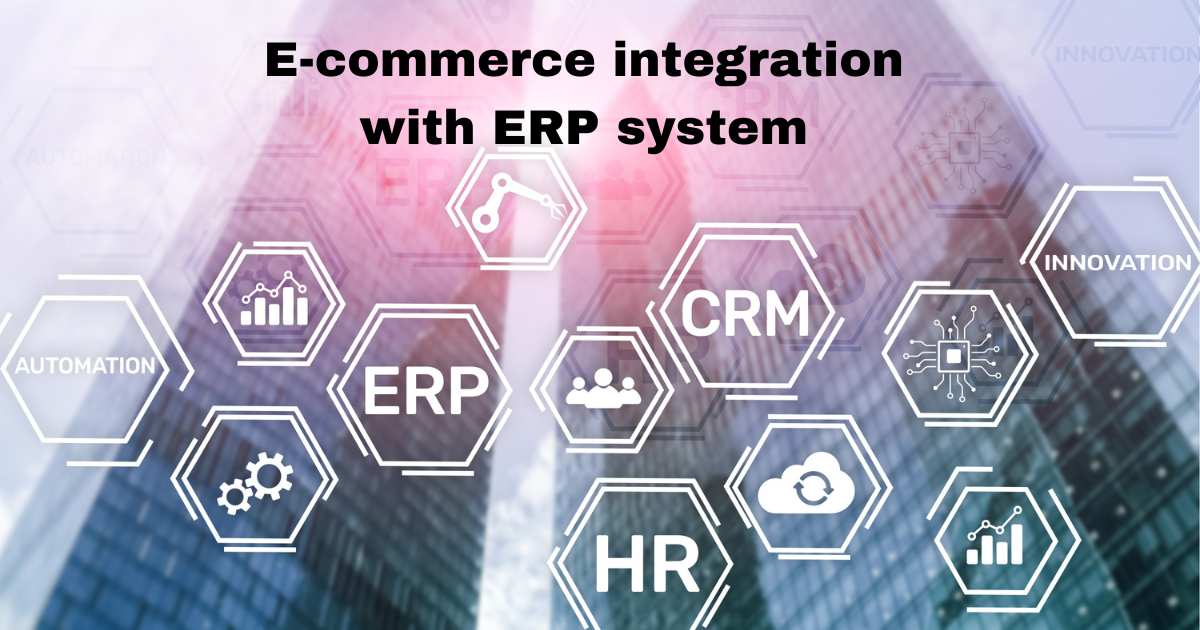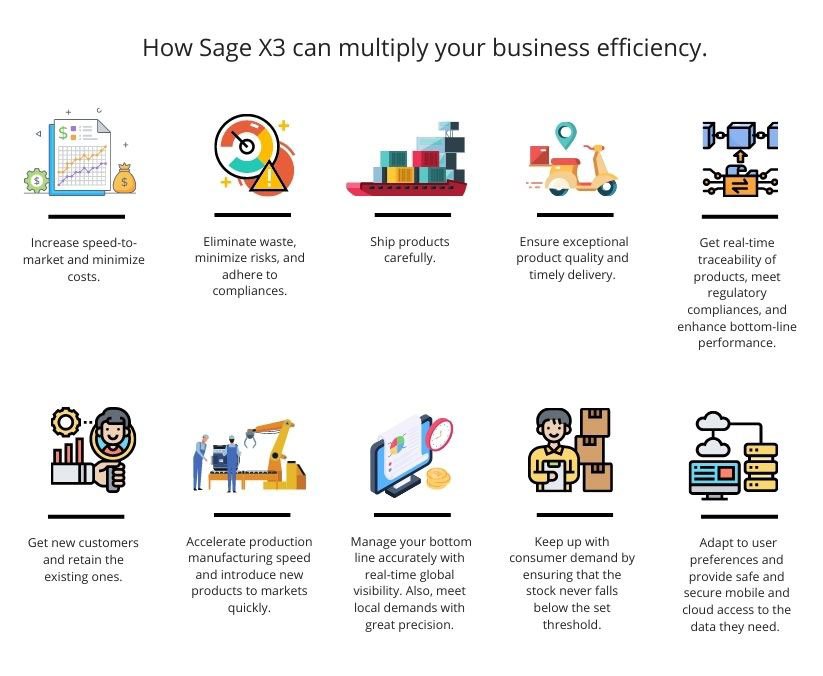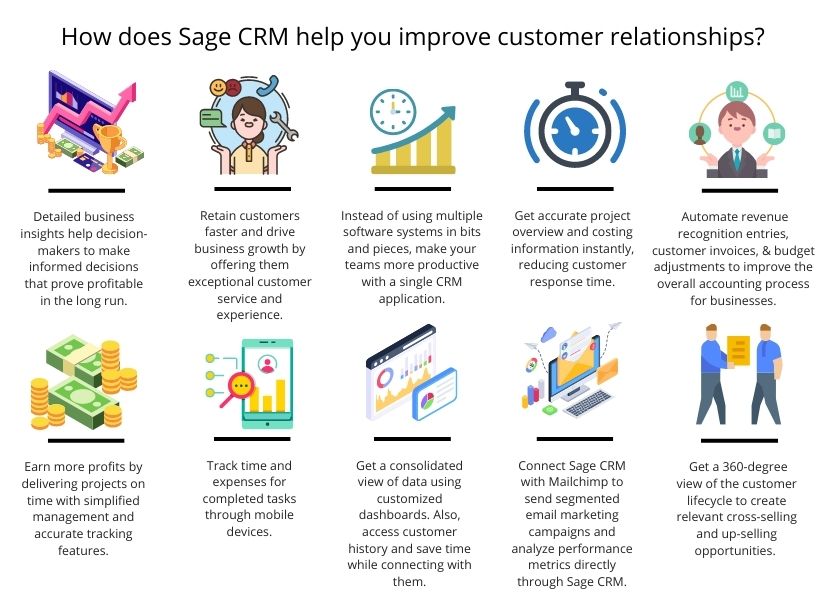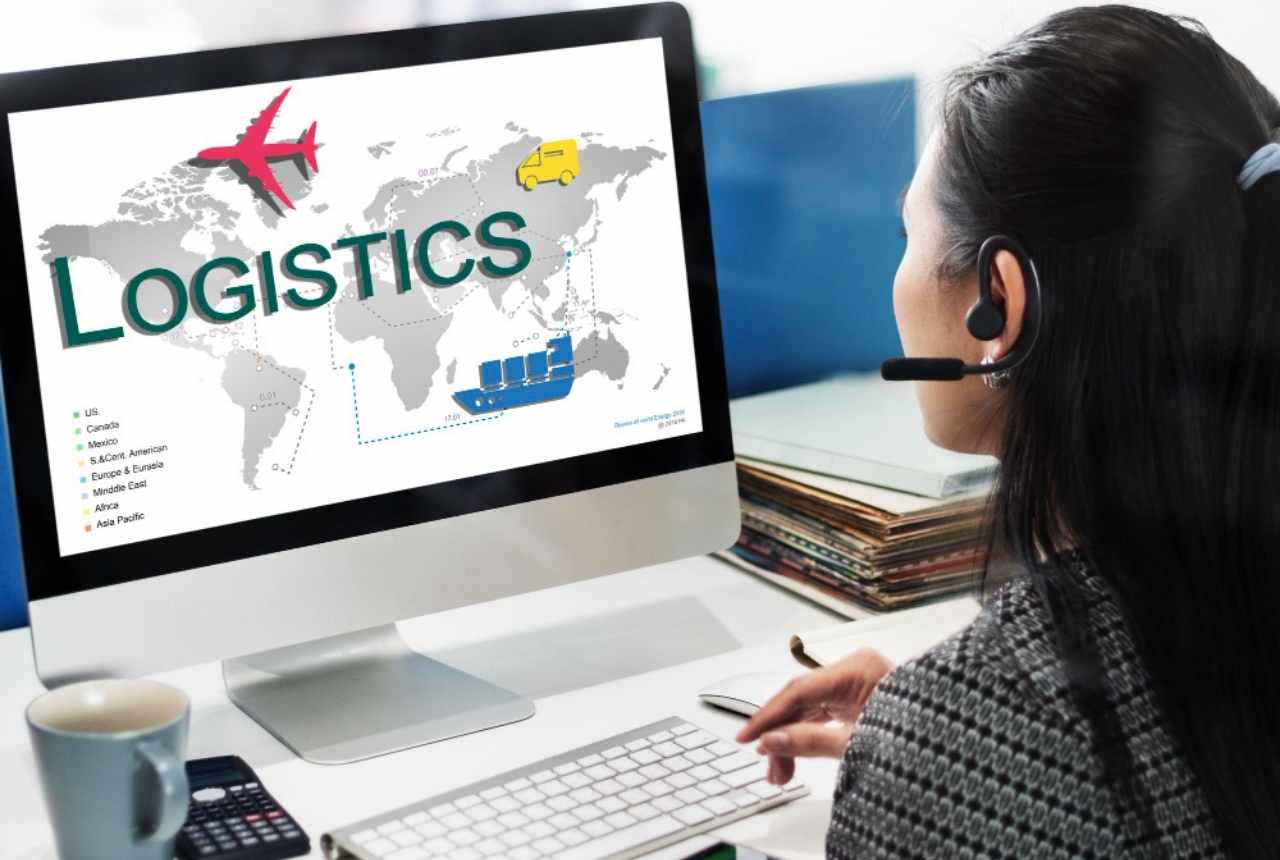Digitalisation has changed the way business operates. E-commerce integration with ERP systems is a necessity for improved business performance. E-commerce businesses flourished during the pandemic covid 19. Many business owners realised the importance of e-commerce platforms to sell their products during the lockdown. Plus, social media platforms helped multiple businesses to market their products to the target customers.
Your business may be B2B (Business to business), B2C (Business to customer), or D2C(Direct to customer), but all types have one thing in common – the goal to succeed and stay on top. Note that as your business expands, the intricacy of your business functions also increases.
You cannot rely on traditional technology. Each department has its system to manage daily activities. For example, the sales department handled CRM (customer relationship management) software, accounts department had different software to manage all the accounting details and transactions. As a result, the business departments were separately functioning, and data access was a concern.
Overview of an ERP System?
ERP, or enterprise resource planning software, is an advanced solution to control the everyday activities of business functions. It is an integrated business management system to reduce the complexities of conducting a business. It simplifies the operations of the company. In addition, it is a centralised system where all the users can access data. Data transfer can be done with ease across the departments.
This enhanced system is user-friendly and has an interactive interface. It can be integrated into third-party systems. There are three common types of ERP systems – On-premise ERP systems, Cloud ERP systems and hybrid ERP systems.
What is E-commerce Integration?
E-commerce integration is very crucial for businesses today, especially after the pandemic. The pandemic covid 19 made companies realise the significance of integrating their business into e-commerce platforms. In 2022, it was estimated that at least 2.3 billion customers buy from online e-commerce platforms globally.
It has become a necessity for companies to bind their business software to shopping carts and marketplaces to expand their business and increase their customer base. Plus, access to data regarding products, customers, orders, shipments and carts can be acquired.
What is ERP in e-commerce?
ERP in e-commerce is a trending concept for many businesses. ERP system integration with the e-commerce platform ensures the secure storage of all data regarding shopping carts, orders, customers, invoicing and products in a centralized system. This enables data access to all of its users and avoids room for confusion.
As a result of the integration of the ERP system with e-commerce platforms, it is easy to track valuable insights to make impactful decisions for your business.
Challenges of manual processes
If you are trying to operate your e-commerce business manually, it’s going to be tedious and time-consuming. Let’s explore some of the challenges of e-commerce operations when done manually.
- Manually integrating your shopping platform with e-commerce platform is too expensive.
- You will have to hire highly skilled IT experts to integrate your shopping platform with the e-commerce marketplace.
- The primary issue is the security issue. If the connections are weak, it can be a security threat and lead to data theft.
- Integration, when done manually, takes a long time to connect.
- Upgradation of the marketplaces is worse, you may lose data sometime if it’s not done carefully.
Benefits of e-commerce integration
E-commerce integration is a significant benefit for all businesses. It helps them to compete and stay on top. To reach the highest level, your business’ shopping platform should integrate with third-party apps to increase productivity and sales. Let’s look at some benefits of e-commerce integration with an ERP system.
Great online experience
Your customers can have the best experience if you increase customer engagement. After a customer places an order, be transparent regarding product information like the manufacturing process, when it is shipped, and the location of the product till it reaches their doorstep.
This will improve customer satisfaction.
Manage the pricing of the product
Regarding pricing, if you have integrated your ERP software with the e-commerce platform, you can respond differently to different customers. In addition, it is possible to open 80 % data accessibility to one customer and 100 % data accessibility to others as per your requirements. Especially in the B2B business, if one customer has negotiated the rates and the second one didn’t, you can send the pricing individually to different customers.
Adequate time consumption with e-commerce integration
ERP software integration with e-commerce automates all business processes. As a result, sending notifications to the customer as per the need will be easier, faster and on time. Plus, time to exchange data between the two systems can be saved due to automation.
Businesses can focus more on the valuable delivering of high-quality goods instead of scrutinizing if the data is replicated.
Real-time access to valuable insights
The customer engagement data is safely stored in the ERP software. This aids in making impactful forecasts or reports to make decisions for the business.
Data Integrity and Accuracy
Data rules the world. Information is the foundation of the business. Business owners will understand its value more. It has the power to grow a business or destroy it. Likewise, data is an integral part of a business. Customers are significant for any business. To keep the customers happy, you need access to accurate data. With the data, you can increase customer engagement and interaction and grow your business.
Also Read: What are the Primary Business Benefits of an ERP System?
E-commerce integration with ERP software
Below are the most common benefits of eCommerce integration with ERP software.
Order placing
ERP solutions quicken the order placement by adding up the product charges, shipping and tax charges so that it will be easier for the customer to check out and make payments.
Updates accurate data to the customer
ERP software integration help in updating information about a business transaction made by the customer. It updates the customer regarding the shipment, location of the product, and invoicing. Till the product reaches the customer, each piece of information about the product is notified to the customer.
Adjusts pricing
Based on the product’s procurement and the market’s selling price, an ERP system automatically adjusts the product’s pricing.
Reports inventory changes
An ERP solution automatically updates the number of stocks available in the inventory. This feature helps the business owner to know the number of stocks available and the products available for purchase.
ERP software features necessary for e-commerce integration
ERP software integration with e-commerce is a boon for your business. Note that you should ensure some common features, which is a must to use e-commerce platforms efficiently.
Finance
ERP system is the best at managing the finances of the company. It helps to record and maintain the general ledger(GL), accounts receivable (AR) and accounts payable (AP). Accurate transactions with details are recorded. It can be managed through Quickbooks, a cloud ERP solution. You can track any accounting detail in real-time, which is beneficial for e-commerce integration.
Each financial transaction is recorded accurately in the ERP system. Automation of financial management will boost business productivity.
CRM
CRM software embedded in ERP solutions is a game changer for the business. If you want your business to progress, customers are essential. You need to assess contacts, customer details and other data to give the proper support to your consumer.
CRM software helps build the accurate customer relationship database necessary to engage and interact with customers. It will be easy for your business to reach out to the customers in case of sales, special discounts, offers, or promotions.
With ERP CRM integration for e-commerce, you get the complete information required to provide your customer with the highest support level, ultimately improving your sales.
Inventory management
Inventory management is an essential aspect of successfully running a business. When dealing with an e-commerce business, you need to know the number of stocks stored in your inventory.
ERP system enables its users to view the stock details in real-time. ERP solutions also help in notifying when the inventory is low or when there is an overflowing inventory.
In addition, it provides intelligent solutions regarding information about the stocks available for purchase. The users can access real-time information about the available stocks in the inventory.
Distribution and Warehouse Management
Supply chain management is critical for e-commerce business. An ERP system helps provide end-to-end transparency in the entire supply chain process. The users can access the product details in real-time. Information on the shipment, product tracking, and logistics can be tracked easily. An ERP solution can access actions like packaging, batch tracking through serial numbers, and customer information. Workers can track all these details through tabs, mobile devices, or any other device.
To conclude, e-commerce integration with an ERP solution benefits the company’s growth. There are a lot of features embedded to support e-commerce integration. A business owner should know all those features regarding e-commerce integration solutions. It will help them choose the right system for their business.
Also read : What is Supply Chain Management (SCM) in ERP?
Sage X3
Sage X3 enterprise resource planning erp is a robust business management software providing an intelligent solution to manage everyday business operations. It brings balance in depth to all the core business functions. It is an agile, efficient, flexible and modular solution to manage your business and accelerate its growth.
Sage CRM
Sage CRM systems is a comprehensive suite to integrate your sales, marketing and customer information to provide the best customer support. With Sage CRM, achieve higher revenues, gear up your growth and automate your entire business processes to attain business efficiency. Implement this intelligent solution to maintain better customer relations
Sage Software Solutions is a leading IT company with an array of advanced ERP Software solutions. Our proprietary products — Sage X3 and Sage 300 will help you cut your operational expenses, improve business productivity, increase operational efficiency, forge robust customer relationships, and strengthen association with vendors, suppliers, and distributors. So, if you are looking to reinforce your business fundamentals and emerge as an industry leader, then please schedule a call with one of our sales representatives.






